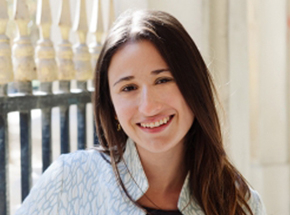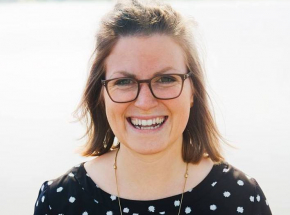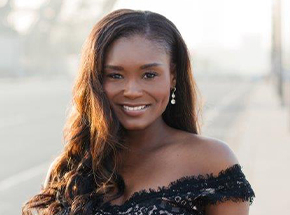- About AUP
- History of AUP
- Mission & Core Values
- Vision and Leadership
- AUP Recognition
- Alumni Success
- Campus Development
- Arts at AUP
- Policies & Guidelines
- Academics
- Undergraduate
- Graduate Programs
- MA in Diplomacy and International Law
- MA in Global Communications
- MSc in Human Rights and Data Science
- MA in International Affairs
- MA in International Affairs, Conflict Resolution, and Civil Society Development
- MSc in International Management
- MSc in Strategic Brand Management
- Find Your Thesis Advisor
- Previous Programs
- Cultural Program
- Faculty
- Summer School
- Research Centers
- The Center for Critical Democracy Studies
- The Center for Writers and Translators
- The George and Irina Schaeffer Center for the Study of Genocide, Human Rights and Conflict Prevention
- The Joy and Edward Frieman Environmental Science Center
- The Center for Media, Communication & Global Change
- Departments
- Academic Resources
- Academic Affairs
- Academic Calendar
- Academic Resource Center
- Library
- Registrar's Office
- Teaching and Learning Center
- Employer Network
- Accessibility & Accommodation Services
- Quai D'Orsay Learning Commons
- Paris as Classroom
- ACE Center
- Admissions
- Student Life
- Campus
- Student Leadership & Involvement
- Paris
- Support Services
- Student Development Help Desk
- Student Accounting Services
- Student Immigration Services
- Student Grievance Procedure
- Diversity and Inclusion
- Health & Well-being
- Digital Student Handbook
- News
- Events
- AUP Giving
- Housing Offer for 2024-2025
- Housing | Spring 2024
- IRIS Project
- IT Services
- Alumni
- About AUP
- History of AUP
- Mission & Core Values
- Vision and Leadership
- AUP Recognition
- Alumni Success
- Campus Development
- Arts at AUP
- Policies & Guidelines
- Academics
- Undergraduate
- Graduate Programs
- MA in Diplomacy and International Law
- MA in Global Communications
- MSc in Human Rights and Data Science
- MA in International Affairs
- MA in International Affairs, Conflict Resolution, and Civil Society Development
- MSc in International Management
- MSc in Strategic Brand Management
- Find Your Thesis Advisor
- Previous Programs
- Cultural Program
- Faculty
- Summer School
- Research Centers
- The Center for Critical Democracy Studies
- The Center for Writers and Translators
- The George and Irina Schaeffer Center for the Study of Genocide, Human Rights and Conflict Prevention
- The Joy and Edward Frieman Environmental Science Center
- The Center for Media, Communication & Global Change
- Departments
- Academic Resources
- Academic Affairs
- Academic Calendar
- Academic Resource Center
- Library
- Registrar's Office
- Teaching and Learning Center
- Employer Network
- Accessibility & Accommodation Services
- Quai D'Orsay Learning Commons
- Paris as Classroom
- ACE Center
- Admissions
- Student Life
- Campus
- Student Leadership & Involvement
- Paris
- Support Services
- Student Development Help Desk
- Student Accounting Services
- Student Immigration Services
- Student Grievance Procedure
- Diversity and Inclusion
- Health & Well-being
- Digital Student Handbook
- News
- Events
- AUP Giving
- Housing Offer for 2024-2025
- Housing | Spring 2024
- IRIS Project
- IT Services
- Alumni
Alumna
Faith Toran G’18
Communications and Fundraising Coordinator for Doctors Without Borders
Related Graduate Programs :
Faith Toran G’18
Five years out from graduation, Faith’s career has already taken her all over the world, conducting humanitarian work on the forefront of global emergency relief efforts as a communications professional for Doctors Without Borders.
What first brought you to AUP?
After earning my BA in Political Science from Spelman College in Atlanta, Georgia, I worked as a legislative aid in the Georgia House of Representatives and, later, as a Peace Corps Education Development Agent in Burkino Faso. Both of these roles drew me to digital storytelling and development communications as a career path. I wanted to create dialogue through cultural exchange and promote change in international development efforts; the Development Communications Track of AUP’s MA in Global Communications was a fantastic way to achieve that.
What sticks in your mind about the AUP experience?
I enjoyed the small class sizes and how accessible professors were, as well as the practical applications of course material through great on-site experiences like the Sustainable Development Practicum in India. Development communications provided me with a useful toolkit that helps me be adaptable and pragmatic when putting theory into practice. I was encouraged toward a deeper level of exploration, which challenged my preconceived notions of how development work happens. I use these skills in my work whenever I feel stuck. The ability to reflect and be critical about my own approaches allows me to be creative and move projects forward.
Your early career was environment-focused...
I worked for Unis-Cité, a French organization advancing national youth service, for a while, before finding a role geared towards environmental issues: working for the UN as a Communication for Development Specialist in Guinea, West Africa. It was the perfect job for my degree! The education I received at AUP was so valuable that the UN had open positions for people who’d studied exactly what I had. I worked for a few months on a multimillion-dollar climate adaptation and resilience project...
And then the pandemic hit...
The borders were closing. Everyone got sent home. It was 2020, and I hadn’t been back to the US properly since 2013. I spent time in quarantine thinking hard about what I wanted to do next. I decided to work on something with more immediate impact, given the Covid crisis, so I interviewed for a communications position with Doctors Without Borders (Médecins Sans Frontières, MSF). It was the middle of the pandemic, but I was still able to move to Haiti to conduct humanitarian work. I was glad to be responding directly to what was happening in the world.
What has your time with MSF taught you?
Initially, during the pandemic, I learned a lot about crisis communications. It was an interesting, if sometimes frightening, experience to confront violence in the five months I was in Haiti. My second mission was to Cameroon. As a neutral party, MSF workers are able to go into areas that others aren’t – but that also comes with risks. After nine months of frontline emergency response work, I took a job with MSF’s climate office.
So things have come full circle?
I’m back working on environmental issues, yeah. I’m the Communications and Fundraising Coordinator for MSF’s Climate-Smart project. It was set up to bear witness to the impacts that climate change is having on the health of our patients, but we soon realized there is also a need to reduce the organization’s own emissions. MSF has an estimated 65,000 people working for it in 72 countries. We have a principle of doing no harm when we respond to emergencies – that has to include not harming the planet too. I’m part of a team of people supporting the organization’s decarbonization work.
What does that work involve?
I am producing communications materials to support decarbonization efforts and also amplifying success stories where they already exist to connect people in different countries so they can share innovation. I spoke at Climate Week in New York City alongside Columbia Climate School, explaining how increased access to environmental data could improve humanitarian action. I’m also concerned with growing eco-anxiety among humanitarian workers; I worked on a podcast with MSF Canada that explored eco-grief in youth.
Related
-

Lindsey Tramuta G'09
Alumna
Read MoreLindsey Tramuta G'09
Alumna
The training I received in and out of the classroom has been unendingly useful in my post-graduation career.
-

Paige Beaton Coulier G’13
Alumna
Read MorePaige Beaton Coulier G’13
Alumna
As brand builders, we are out in the world every day, helping people know and love our companies.
-

Jacinda Carlisle G'20
Alumna
Read MoreJacinda Carlisle G'20
Alumna
With its diverse curriculum and distinguished roster of professors, AUP offers exceptional opportunities for study and achievement.

